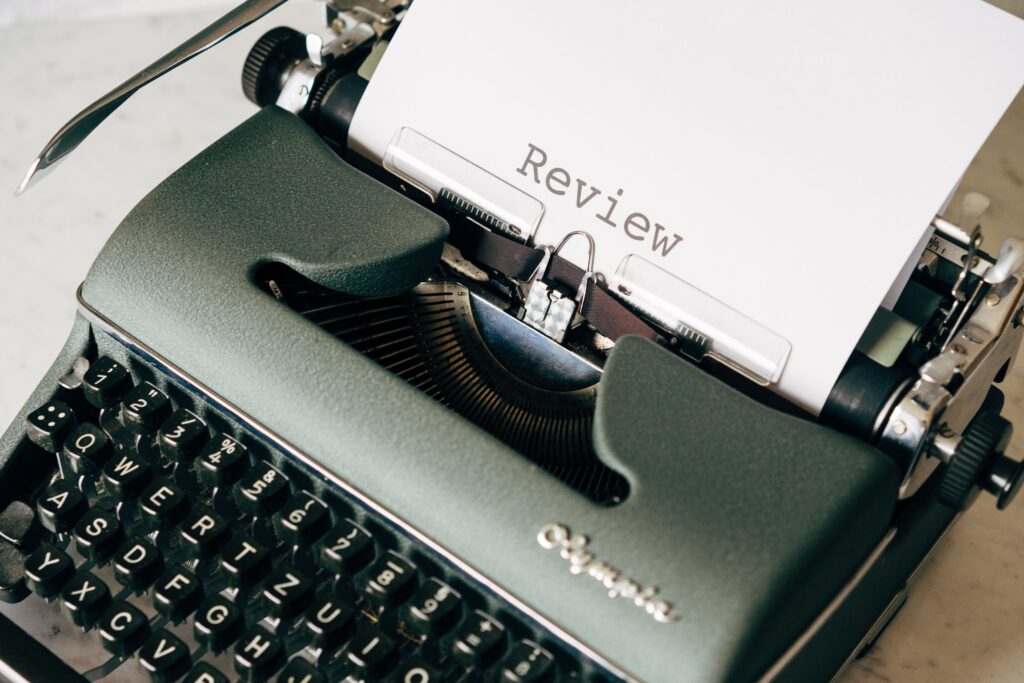In this section I wanted to explain a bit how I approach reviewing so you know what to expect on this site. I try to be as objective as I can, but always keep in mind that what I write about a book is just my opinion, and it’s totally fine if you disagree! With that said, here are a few things I think about when reviewing a book.

Context is Key
The first and probably most important thing for me is context. By that I mean: what are the circumstances surrounding the book, its key topics, its author? Am I reading the 3rd part of a fantasy series of novels or am I reading a self-help book about starting a business? What about the time of its release? What was the Zeitgeist of that particular time? Can I expect some biases from the author? Is the author a teen starting out or a seasoned professional with many books under their belt? Those are just some examples. Of course you can’t think about everything surrounding a book, but you get my point. Looking at the big picture first helps to understand the details later.
Though Judge
I like to be very critical when reviewing a book (or anything else). I feel that we have somehow gotten used to mediocre content these days. How many times do you hear people praising that new Netflix show, then you watch it and it’s just…okayish? Not too good, not too bad, but people watch it, and therefore here comes the second season. It’s the same for books, if you read something and you really dislike it, I think you should provide a bad score (and share your reasons if possible). This helps people who share your style to avoid that book and save their time for another one they might enjoy. Who has time to read bad books when there are so many good ones out there?
The Content
If we talk about fiction, there are three things I consider in the order of importance:
• Characters
• Plot
• Setting
Of course all are important, but for me the characters are what it’s all about. Even if the story and setting are amazing, if I don’t care about the characters, I will probably not enjoy the book.
For nonfiction, I like to see a good, easy-to-navigate structure and clear points that you can actually put into practice.
Other important aspects for me are writing style and pacing.
Equal Score, but not Equal
When reviewing a book, I like to think about how the book succeeded in being what it wanted to be. Here again, the context is important, if I read a 1000 page epic adventure, I do not expect the same experience as reading a short 100 page love story. With that in mind, if two books have the same star rating, that does not necessarily mean I consider them equally good or bad. For me this rather means that both books equally succeeded in what they wanted to accomplish in their respective categories. Taking on a more difficult assignment when writing a book probably means it will be more challenging to get a very good score.
The Format and Star Rating
The review format will somewhat depend on the book, however some aspects I try to keep standard, like a short about section, how long the book is, some pros and cons and a star rating out of 5. My view of the star rating is as follows:
1 – Not worth your time
2 – Has some positive aspects, but would not recommend
3 – Average
4 – Very good experience, worth a read
5 – Excellent
Regarding the book length, the idea is just to give you a rough indication of how many pages you can expect since this can be an important factor when choosing your next read. I want to keep it quite loose and general and divide it like this:
Short – up to approx 100 pages
Medium – up to approx 300 pages
Long – up to approx 600 pages
Very Long – up to approx 1000 pages
Colossal – above 1000 pages
I wish you happy reading!